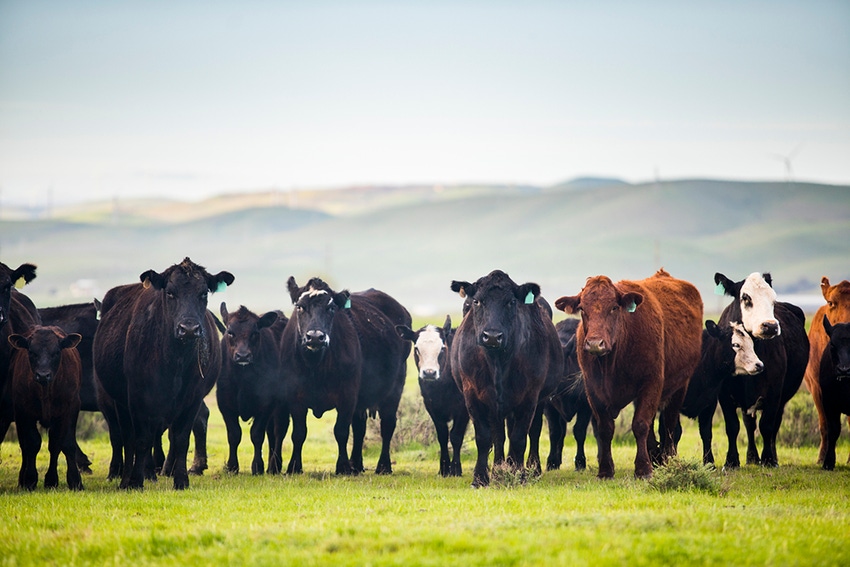California cattle producers beef up state’s cattle business
With a new California Cattle Council now in play, the state’s beef producers will up the ante in research and education.
April 17, 2019

By Markie Hageman
March 22 is a date that California beef producers will long remember. That’s the day beef producers from across the state voted to pass Bill 965 to implement the California Cattle Council.
With the support of the California Cattlemen’s Association (CCA), the California Cattle Council Referendum passed with a 68% approval. The Cattle Council Referendum was a vote to determine if an additional mandatory $1.00 on the sale of live cattle should be assessed.
This dollar-per-head will help fund the Council, which was created as a way to help protect and defend producers in the state. As of April 5, 2019, the Secretary of Food and Agriculture declared the council as fully operative.
Butte County, California rancher, and past California Cattlemen’s Association President, Dave Daley was the chair of the Cattle Council Outreach Committee and said the CCA has been working to get this council up and running for the past three to four years. It all began with CCA members seeing a need to focus on issues producers face in the state.
With the help and support of Western United Dairymen and county cattlemen’s groups all over the state, the Cattle Council was created. Members from both associations were asked what they wanted the Council to focus on. From their responses, the priorities for the new Cattle Council will include: live cattle issues, refund provisions for those who don’t wish to support the Cattle Council, and other issues besides beef.
However, from the initial spark of the idea to getting it passed was no easy task. “We had to go through twice to get it (the referendum) done; we had to educate legislators. It took about two to two and a half years to get it signed by Governor Jerry Brown” Daley said.
“Animal rights groups tried to stop the bill from going through and there was opposition from legislators on both sides who didn’t want anything to do with promoting the cattle business.”
To get the referendum to a vote, CCA and Western United Dairymen educated legislators on the benefits of the council. But Daley stated that the ranchers had the ultimate decision. “We just set up a framework for producers to vote on the referendum if they wanted it.”
The ranchers didn’t disappoint, either. Four hundred ranchers and 30 county associations sent in letters of support for the referendum and multiple ranchers showed up on the hill to convince legislators to pass the bill.
Unlike the California Beef Council, which focuses on marketing and promotion of beef, the California Cattle Council is a separate entity that will focus on the live cattle issues important to California cattle producers. With its implementation, the Cattle Council will be able to use resources to promote and protect cattle production, as well as focus on production issues common to the state.
This includes hot-button issues such as fire, water and air quality. The council will also be able to fund research regarding these issues to educate regulators and legislators about the benefits of cattle production. Neither legal defense nor lobbying are allowed through the funding of the Council.
The mandatory $1.00 assessment will be required for all cattle sold in the state, both beef and dairy, but will exclude calves that are smaller than 250 pounds. This assessment will be collected at the time of sale by the brand inspector or at the sale barn. The key factor in this assessment is that producers who do not want to participate can ask for a full refund of the fees by submitting a claim to the council.
The council will have a board of directors to direct the group’s activities and select funding priorities. The board will be made up of 11 board seats and 11 alternates. These seats will be taken by producers from the state; any and all producers are eligible to serve.
These non-paid appointments to the Board will be made by the California Secretary of Agriculture and will come from all segments of the California cattle industry: 3 range cattle producers, 3 cattle feeders, 3 dairy producers, 1 processor/packer and 1 public member. Nominations are being accepted until May 22, 2019. Forms can be found on http://www.cdfa.ca.gov/go/cattle. Once the board convenes, producers will send proposals for funding, and the board will vote to determine where their funding priorities will go.
The Cattle Council expects to bring in about $3 million per year and will put a significant amount of that money back into the cattle industry in California.
Hageman is a senior agribusiness student at Fort Hays State University with a special interest in the beef industry.
You May Also Like


.png?width=300&auto=webp&quality=80&disable=upscale)
